PC vs laptop – which is better and what are the differences?
Looking to buy a new computer? We highlight the best features of both a desktop PC and laptop to help you choose between the two
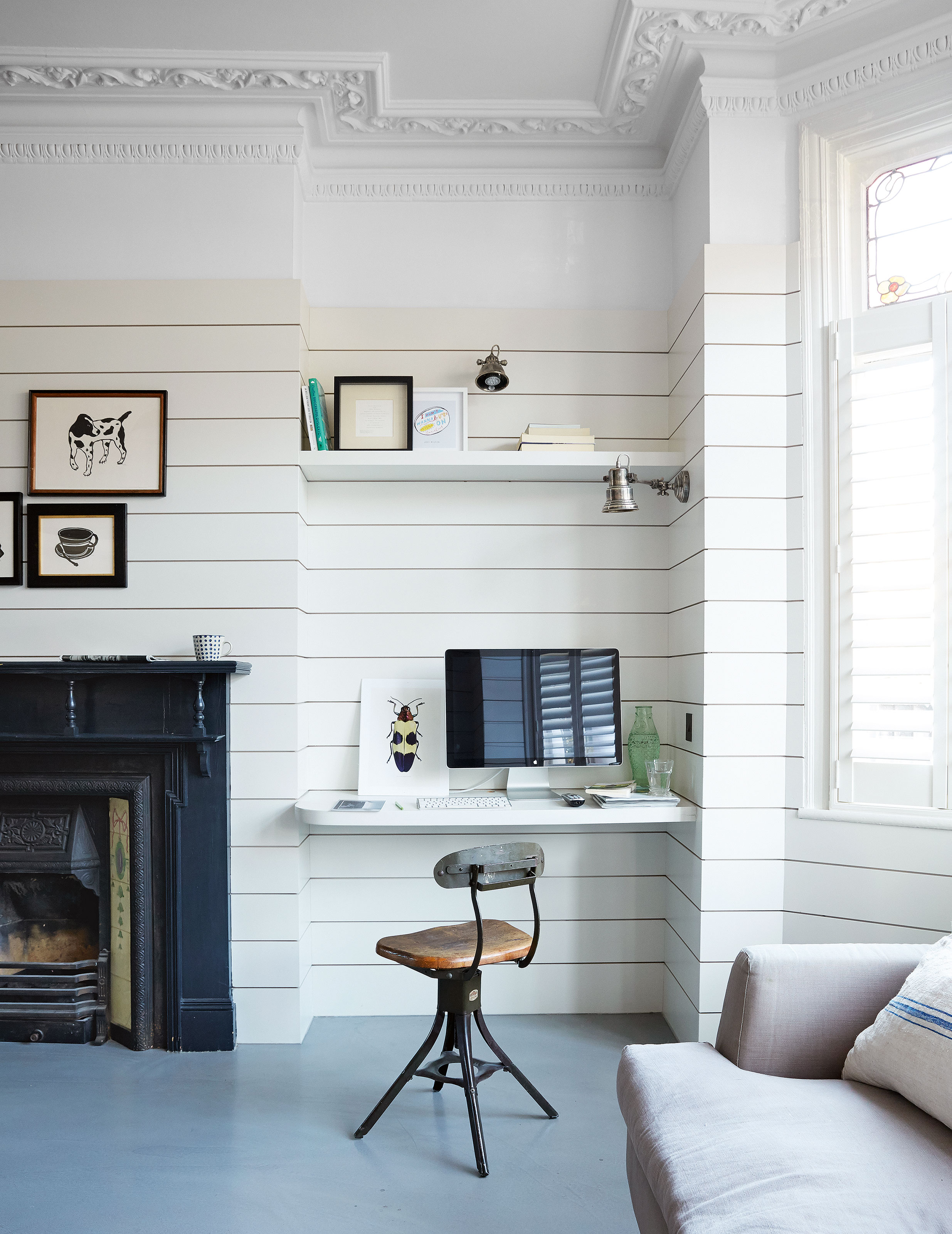
Dare we say it but when your computer starts to slow down or packs up entirely (gulp), it presents the perfect opportunity to upgrade to a sophisticated new desktop PC or laptop. If you're looking for something easy to use, convenient and well-prepped with all the latest software, but not sure whether the desktop PC route or laptop route is right for you, we're here to help.
The price and functionality gap between desktop PC and laptop is closing rapidly, but one type may just suit your set up a little better than the other. There are also good reasons to opt for either a static desktop PC or a more flexible laptop.
To help you feel confident when shopping for a computer to suit your work and home lifestyle, we've highlighted the pros for both a desktop PC and laptop here with advice from the experts.
- See also the best photo printers for the home
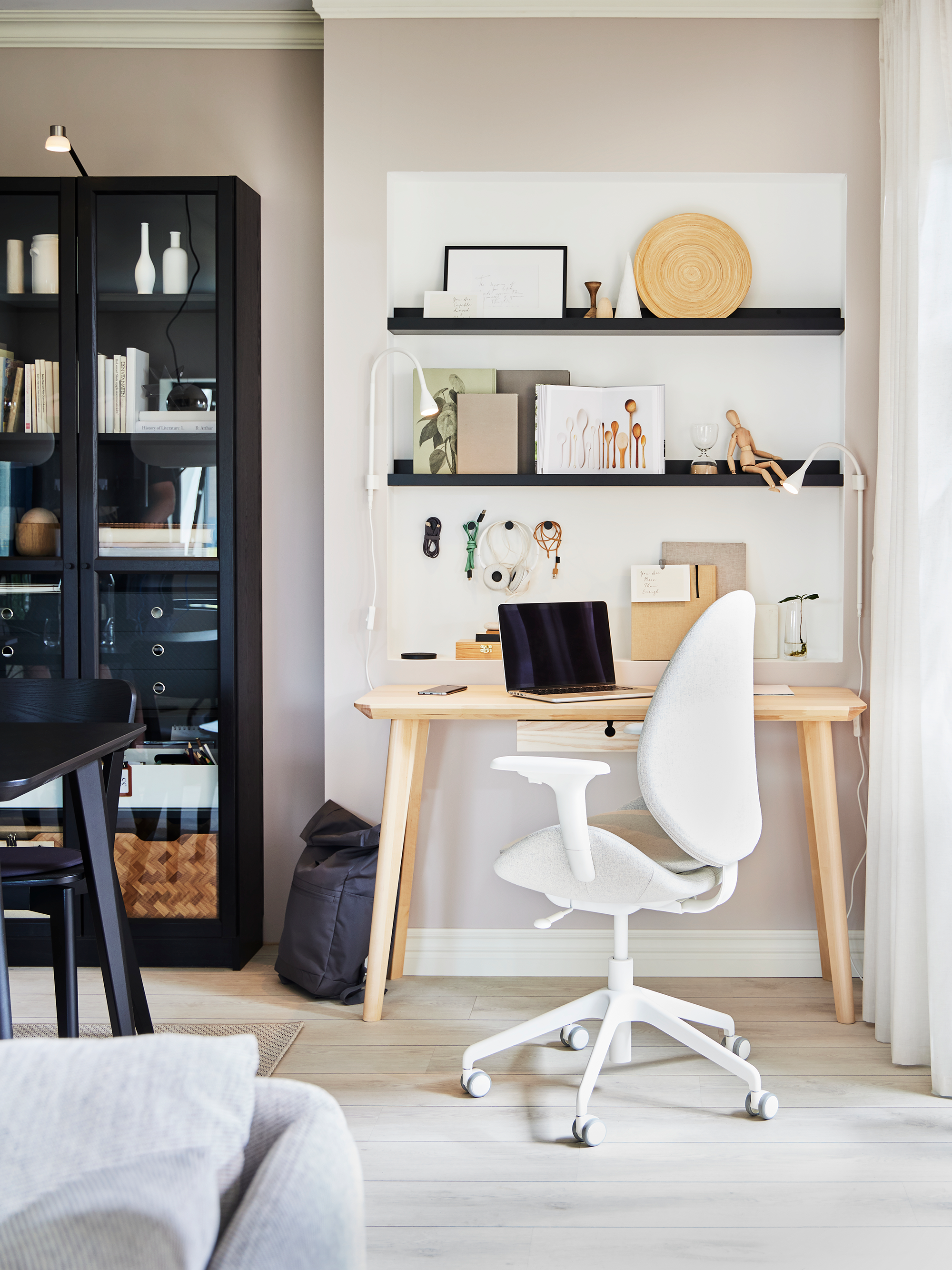
Desktop PC vs laptop – which is better and what are the differences?
The pros of a desktop PC
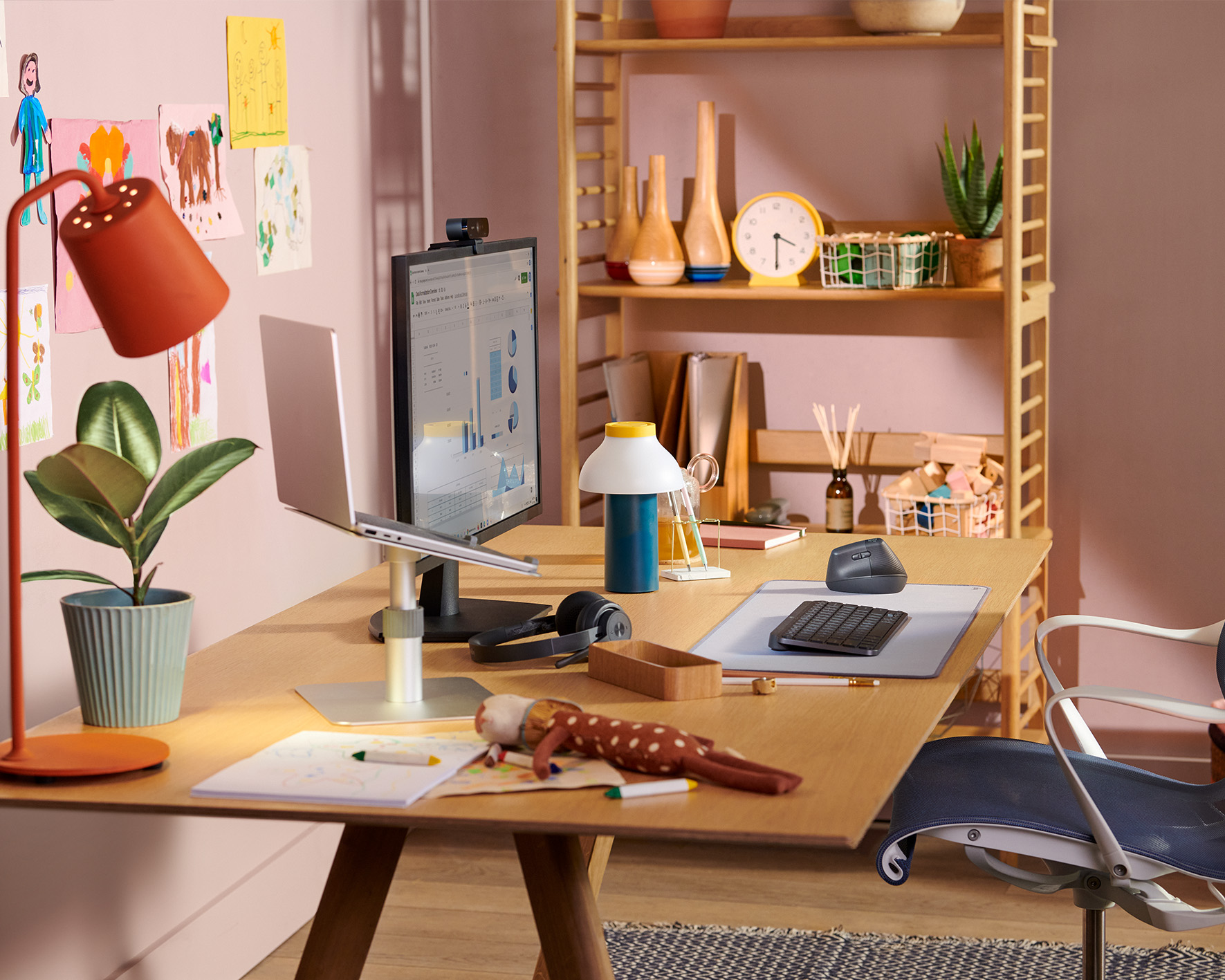
Screen size: Desktop PCs benefit from large monitors that are ideal for multi-tasking including gaming, streaming movies, kids and schoolwork. 'If you’re in a profession that requires you to have a large screen, a desktop set up with a monitor might be more beneficial than a laptop,' says John Crouch, Senior Category Manager, Microsoft Surface. 'A large screen is excellent for editing photos and videos too. While a traditional laptop can average around the 15” mark, a typical desktop PC or a monitor can be anything from 20” and above.'
Sociability: If recent times have shown us anything, being able to connect to our friends and family virtually as well as physically has become more important than ever. 'Choosing a computer with a large screen to make video calls more enjoyable can be a deciding factor on whether you choose a laptop or desktop PC,' continues John. 'Also look out for a computer with good far field microphone and audio technology so you can easily view and hear your contacts.'
Ideal for movies and gaming: When it comes to immersing yourself in the action, the bigger the screen the better. 'When you’re in the midst of gaming, having lots of RAM, storage space and CPU power is key and that's where desktop PCs really come into their own,' adds Dean Kramer, Services Director from Currys. ‘You can go for a gaming PC monitor with smooth graphics and breathtakingly fast speed, all in one.'
Durability: Possibly the more robust option, a desktop PC is designed to stay put so has less opportunity to be damaged like a laptop can on your travels. ‘It’s less likely you will step on a PC so it can potentially last a lot longer than a laptop,’ points out Dean Kramer. 'If you spill water on your desktop PC keyboard the whole computer won't be affected, unlike if you spill something on your laptop keyboard, which could affect the whole device.'
The Livingetc newsletters are your inside source for what’s shaping interiors now - and what’s next. Discover trend forecasts, smart style ideas, and curated shopping inspiration that brings design to life. Subscribe today and stay ahead of the curve.
Specification and performance: As PCs don’t need to be portable, they are a lot bigger than laptops and have the capacity for higher spec components and more space for airflow to keep the device cool. As a desktop PC is plugged in you also don't need to worry about battery life. ‘This all usually results in a better value for money machine compared to a laptop,’ says Pete Braithwaite of Kit Online. ‘There are also a number of different PC form-factors including the all-in-one, which provides a neat solution with the processing power built into a display, or micro-PCs that can sit unnoticed on the back of a monitor or under the desk.'
Easier to add to: Desktop PCs can be added to as you go and tweaked as you see fit with more storage, RAM memory and so on. 'A desktop PC offers more potential to upgrade with more options for storage, hard-drives, memory cards and graphics cards to name but a few,’ adds Pete.
- See also the best wireless printers
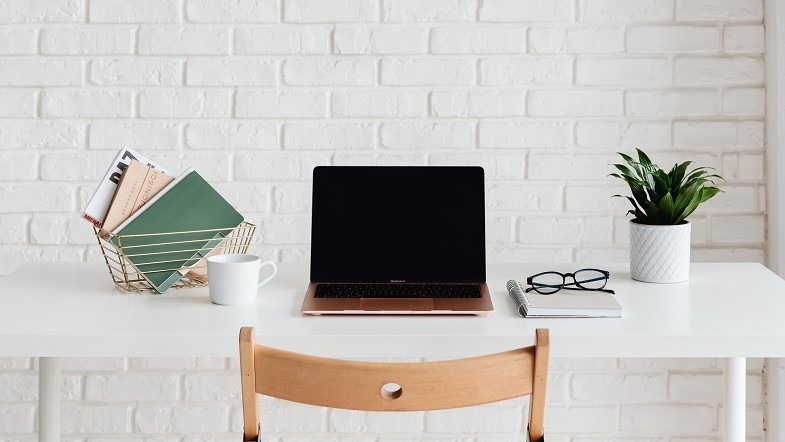
The pros of a laptop
Great for on the go: One of the best things about a laptop is that it is portable and lightweight. ‘This makes laptops perfect machines for the new hybrid working norm,’ says Pete Braithwaite. ‘Laptops are easy to bring to and from the office and allow easy working anywhere in-between.'
Range of designs: There is so much choice when it comes to choosing a laptop size and design - from super sleek models that can slip into your handbag, to more robust 'rugged' laptops that can handle a knock or two. 'With a variety of form factors and sizes, modern laptops range from convertible 2-in-1 devices that can be used more like a tablet when space is limited on your daily commute, to high-powered mobile workstations designed to be a complete replacement for desktop powerhouses,’ says Pete Braithwaite.
Flexibility: Laptops can be very flexible, are optimised for touch control and can work as a laptop, tablet, screen to watch content on or as a digital canvas. It's easy to use a laptop as a monitor, too. ‘Something like the Surface Pro 8 is an excellent family device as it works as both a tablet and laptop,’ says John Crouch. ‘It lights up with the latest Windows 11, and can be used for work, play and creativity. The kids can use the touchscreen tablet to play games or watch Disney+. You can then add the type cover and make use of applications such as One Note and Microsoft Word and be as productive as you like.’
Get the best of both worlds
If you don’t fancy buying a traditional desktop PC with a tower, keyboard, mouse and screen, you can consider opting for a monitor and teaming it with your existing laptop. ‘There are a range of monitors to choose from and you can connect it to your laptop either via an HDMI or VGA cable – HDMI being the best for resolution and a faster connection,’ says John Crouch. ‘Many laptops come with a USB-C port, and you can buy an HDMI/USB adaptor to connect your laptop to the monitor. This will then allow any content you display on your laptop to be projected to the monitor.’
You can choose in the menu to project the PC screen only, duplicate the screen, extend the screen across both your laptop and monitor or use the monitor as a second screen only. ‘With Windows there is also the ability to split your screen, so if you’re working on something on your laptop, but want to keep an eye on the football scores coming in you can have more than one application open at the same time over both screens. When you've finished using your laptop with your monitor you have the benefit of being able to unplug the laptop and take it with you around the home or on your travels.'
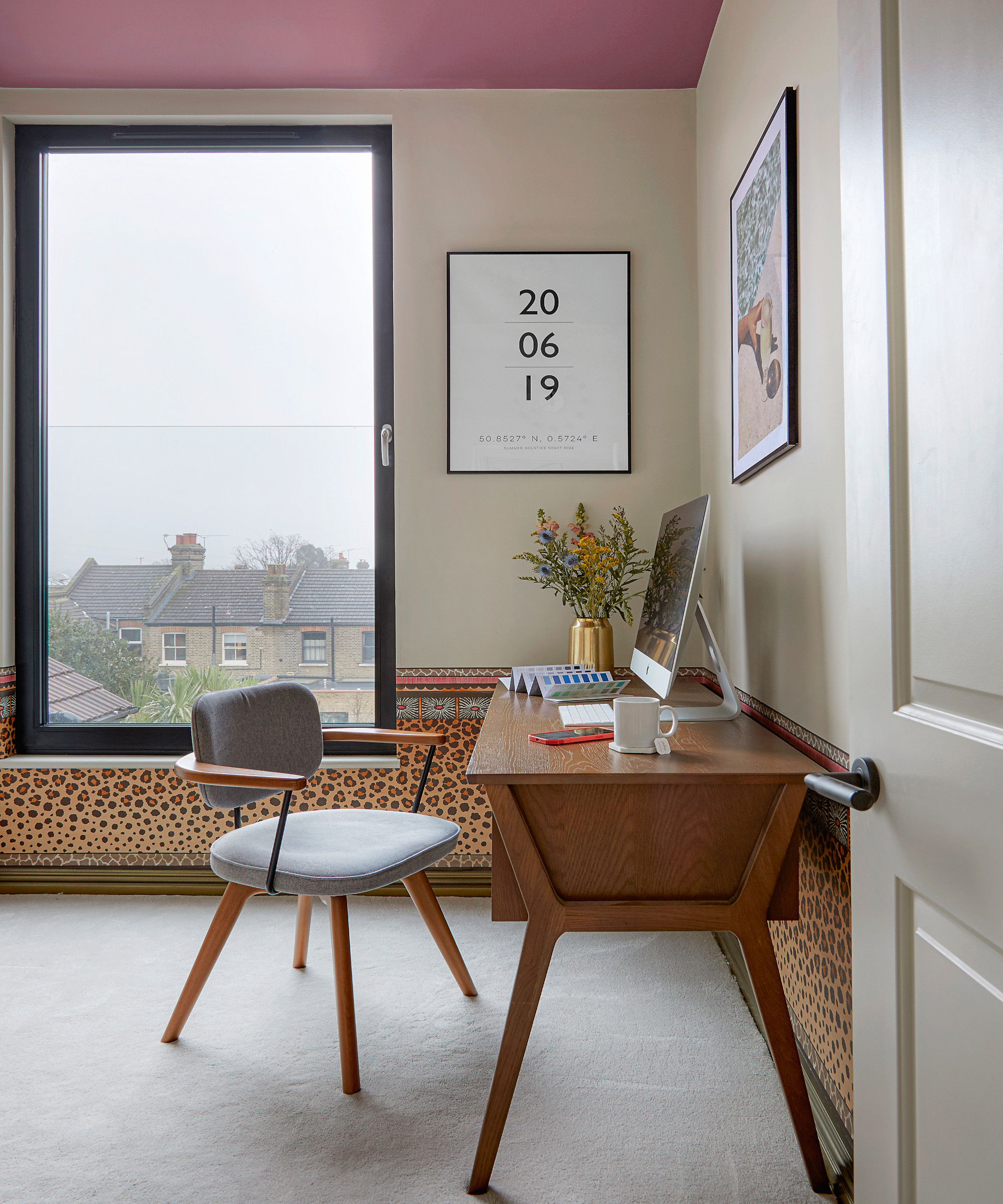
What should I consider when choosing between a PC and laptop?
We’ll cut to the chase and point out that there is no one all-out winner when it comes to choosing between a desktop PC and laptop as both options have their merits. ‘Finding the right model for you depends on your needs and how you intend to use it - be it for working from home, carrying out office calls, editing photos, streaming content, gaming, schoolwork and more,’ says John Crouch, Senior Category Manager, Microsoft Surface. ‘You can customise both a desktop PC or laptop to suit you.’
'Before you buy ask yourself where and how you will be using it and ultimately do you need it to be mobile? Will you be using it mostly at home? Then a desktop PC may be the best option. If you’ll be travelling a lot and using it on the go - be it at work, school or in a coffee shop - then a laptop makes sense.'
What is the difference between a desktop PC and laptop?
At its very basic level a desktop PC is a computer that is designed to stay put on a desk - be it in the home office, open-plan kitchen or alike. It includes a range of components including a monitor, tower, keyboard and mouse. Meanwhile, a laptop has everything built in and can be folded away for easy storage, moved around the house and tucked into your bag for carrying on your travels.
One of the UK's most respected tech and smart homes writers, Emily Peck also covers everything from interiors style to decorating trends. She is a contributor to Wired UK, and has also had a column in House Beautiful. She has written for publications such as Grand Designs, Stylist, Shortlist, Woman&Home, BBC, Ideal Home and House & Garden. She was once the Features Editor of Ideal Home.